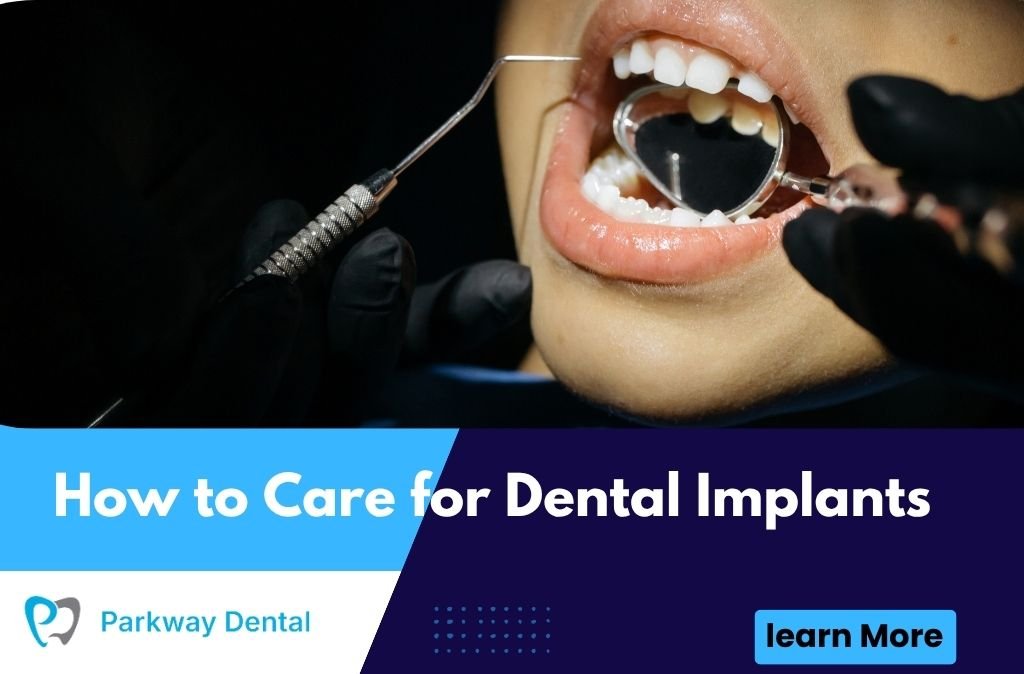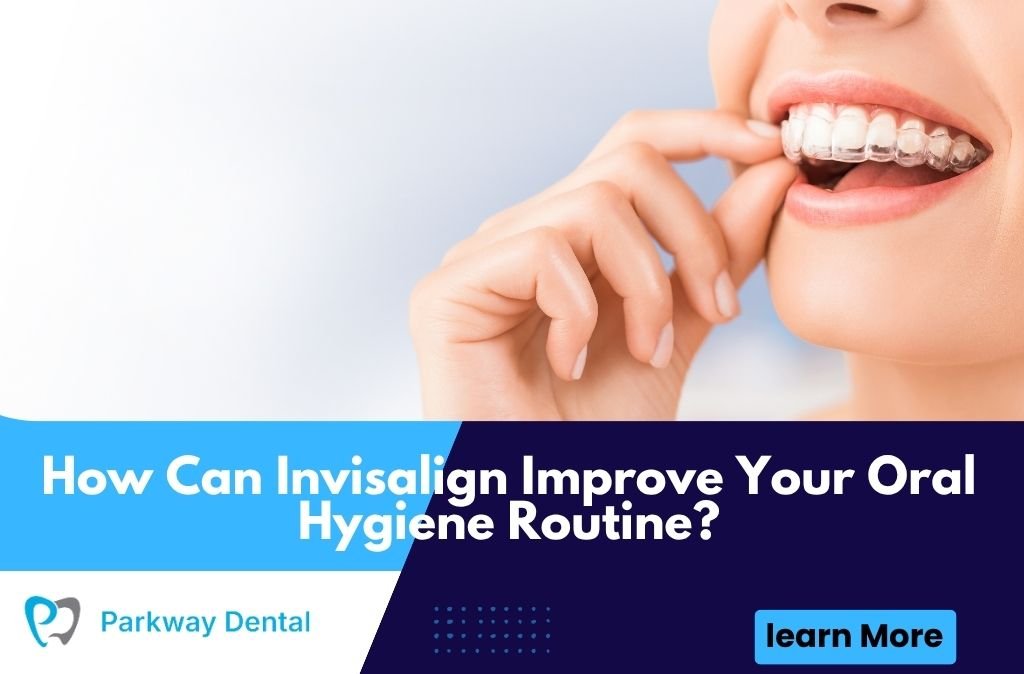Dental implants are a transformative solution for replacing missing teeth, offering a durable, natural-looking alternative to dentures or bridges. With proper dental implant care, they can last a lifetime, restoring chewing ability, speech clarity, and oral aesthetics. However, maintaining dental implants requires a dedicated oral hygiene routine to prevent dental complications like peri-implantitis or implant failure. In this comprehensive guide, we’ll explore how to care for dental implants, including daily oral care, lifestyle adjustments, and the importance of regular dental checkups. Whether you’ve recently received dental implants in West Roxbury, MA, or are considering them, this article provides actionable tips to ensure their longevity and protect your oral health.
Table of Contents
Understanding Dental Implants and Their Maintenance Needs
Dental implants consist of a titanium post surgically placed in the jawbone, an abutment, and a custom-made crown or prosthetic tooth. They mimic natural teeth in function and appearance, but their care differs slightly due to their artificial nature. Proper dental implant maintenance is essential to prevent plaque buildup, gum disease, and damage to the implant or surrounding tissues.
Why Dental Implant Care Is Crucial
Unlike natural teeth, dental implants are resistant to tooth decay, but the gums and bone around them are still susceptible to infection and inflammation. Neglecting oral hygiene can lead to peri-implantitis, a condition similar to gum disease that can cause implant failure. Consistent care ensures the implants remain stable, functional, and aesthetically pleasing, supporting long-term dental wellness.
Components of Dental Implants Requiring Care
The titanium post, integrated with the jawbone through osseointegration, requires healthy bone support. The crown or prosthetic tooth needs regular cleaning to maintain its appearance, while the surrounding gums must be protected from plaque and bacteria. Each component demands specific oral care techniques to ensure the implant’s success.
Daily Oral Hygiene Routine for Dental Implants
A consistent oral hygiene routine is the foundation of dental implant care. By incorporating proper teeth cleaning practices, you can prevent dental issues and keep your implants in top condition.
Brushing for Dental Implant Maintenance
Brush your dental implants at least twice daily using a soft-bristled toothbrush to avoid scratching the crown or irritating the gums. Use a low-abrasive, fluoride-free toothpaste, as fluoride is less critical for implants but can benefit surrounding natural teeth. Focus on the gumline around the implant to remove plaque buildup, which can lead to gum inflammation if neglected. Electric toothbrushes with gentle settings are also effective for thorough teeth cleaning.
Flossing Around Dental Implants
Flossing is critical to remove food particles and plaque from between dental implants and natural teeth. Use waxed floss, dental tape, or implant-specific floss designed for wider spaces. Alternatively, a water flosser can effectively clean hard-to-reach areas without damaging the implant or gums. Floss at least once daily to prevent peri-implant diseases and maintain gum health.
Using Antimicrobial Mouthwash
Incorporate an antimicrobial mouthwash into your oral hygiene routine to reduce bacteria and prevent gum infections. Choose an alcohol-free mouthwash to avoid drying out your mouth, which can increase the risk of plaque buildup. Rinse daily, especially after meals, to keep your dental implants and surrounding tissues clean and fresh.
Dental Implant Cleaning Tools and Techniques
Specialized tools can enhance your dental implant care, making it easier to maintain oral hygiene and prevent dental complications.
Interdental Brushes for Implant Maintenance
Interdental brushes are small, cone-shaped brushes designed to clean between dental implants and natural teeth. They are particularly effective for removing plaque and debris from areas where floss may struggle to reach. Use these brushes gently to avoid irritating the gums or damaging the implant.
Water Flossers for Effective Teeth Cleaning
A water flosser uses a stream of water to clean around dental implants, offering a gentle yet effective alternative to traditional flossing. This tool is ideal for patients with dental restorations or limited dexterity, as it simplifies dental implant cleaning while reducing the risk of gum irritation.
Regular Dental Implant Cleaning by a Professional
Schedule professional cleanings every six months with a dentist to remove tartar and plaque that daily brushing can’t address. Dentist use specialized tools to clean around dental implants without damaging them, ensuring optimal oral health and implant longevity.
Lifestyle Adjustments for Dental Implant Care
Your lifestyle plays a significant role in maintaining dental implants. Making mindful choices can prevent damage and support oral wellness.
Avoiding Hard or Sticky Foods
Chewing hard foods like ice, nuts, or hard candies can damage the crown or loosen the implant. Sticky foods, such as caramel or taffy, can also dislodge dental restorations or trap debris, increasing the risk of gum infections. Opt for a balanced diet with soft, nutrient-rich foods like fruits, vegetables, and lean proteins to support gum health and implant stability.
Quitting Smoking for Oral Health
Smoking is a major risk factor for peri-implantitis and implant failure, as it impairs healing and increases gum inflammation. If you smoke, work with your dentist or healthcare provider to develop a plan to quit. Avoiding tobacco products enhances dental implant success and overall oral health.
Limiting Stain-Causing Beverages
Beverages like coffee, tea, and red wine can stain the crown of your dental implant, affecting its oral aesthetics. Use a straw to minimize contact with teeth, rinse your mouth with water afterward, and brush regularly to maintain a bright smile. These habits complement your dental implant care routine.
Preventing Peri-Implantitis and Other Dental Complications
Peri-implantitis, an inflammatory condition affecting the gums and bone around dental implants, is a leading cause of implant failure. Proactive care can prevent this and other dental issues.
Recognizing Symptoms of Peri-Implantitis
Symptoms of peri-implantitis include gum inflammation, bleeding, swelling, or pain around the implant site. In advanced cases, you may notice loose implants or bone loss. If you experience these signs, contact your dentist immediately for an oral health assessment to address the issue before it progresses.
Maintaining Gum Health Around Implants
Healthy gums are critical for dental implant success. Brush and floss diligently to prevent plaque buildup, which can lead to gum disease or peri-implantitis. Regular dental checkups allow your dentist to monitor gum health and intervene early if issues arise.
Addressing Dental Issues Promptly
If you notice tooth sensitivity, gum soreness, or changes in your implant’s stability, seek dental care immediately. Early intervention can prevent complications like infection or bone loss, ensuring the longevity of your dental implants.
Importance of Regular Dental Checkups for Implant Maintenance
Regular dental checkups are essential for monitoring the health of your dental implants and surrounding tissues. These visits complement your daily oral hygiene routine and help catch issues early.
What Happens During a Dental Checkup
During a dental checkup, your dentist will examine your dental implants, gums, and jawbone using visual inspections and X-rays if needed. They’ll perform a professional cleaning to remove tartar and assess the implant’s stability. Dentist may also provide guidance on improving your dental implant care routine.
Frequency of Dental Visits for Implant Patients
Most dental implant patients should visit their dentist every six months for routine cleanings and examinations. Those with a history of gum disease or other dental issues may require more frequent visits, such as every three to four months, to ensure implant health.
Long-Term Benefits of Proper Dental Implant Care
With diligent dental implant maintenance, you can enjoy numerous benefits that enhance both oral health and quality of life.
Prolonged Implant Longevity
Proper care can make dental implants last a lifetime, unlike dentures or bridges, which may need replacement every 5-10 years. This durability makes implants a cost-effective tooth replacement solution.
Enhanced Oral Aesthetics and Functionality
Well-maintained dental implants maintain a natural appearance, boosting confidence in your smile. They also support optimal chewing ability and speech clarity, improving daily comfort and functionality.
Reduced Risk of Dental Complications
Consistent oral hygiene and dental checkups minimize the risk of peri-implantitis, gum infections, and bone loss, ensuring your dental implants remain secure and functional.
Conclusion
Caring for dental implants requires a dedicated oral hygiene routine, thoughtful lifestyle choices, and regular dental checkups to ensure their longevity and performance. By brushing, flossing, using specialized dental cleaning tools, and avoiding harmful habits, you can prevent peri-implantitis and maintain gum health. Dentist in West Roxbury, MA offer expert guidance and professional cleanings to support your dental implant care. With proper maintenance, dental implants can provide a lifetime of oral aesthetics, functionality, and confidence. For personalized advice and care, consult a trusted Dentist to keep your dental implants in top condition.
FAQs
How often should I clean my dental implants?
Brush dental implants twice daily and floss once daily to remove plaque and prevent gum infections. Use an antimicrobial mouthwash for added protection.
Can dental implants get tooth decay?
No, dental implants are resistant to tooth decay, but the surrounding gums and bone can develop peri-implantitis if oral hygiene is neglected.
What tools are best for dental implant cleaning?
Use a soft-bristled toothbrush, interdental brushes, or a water flosser to clean around dental implants effectively without damaging the crown or gums.
How often should I visit a dentist for dental implant maintenance?
Schedule dental checkups every six months for professional cleanings and implant assessments. Those with gum disease may need visits every 3-4 months.
Can smoking affect my dental implants?
Yes, smoking increases the risk of peri-implantitis and implant failure by impairing gum health and healing. Quitting smoking is essential for dental implant success.






